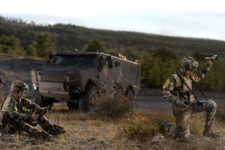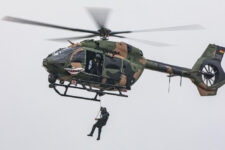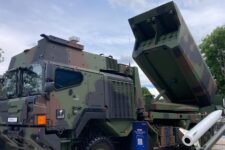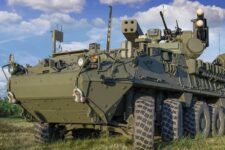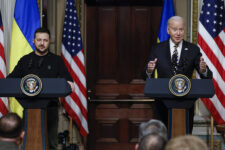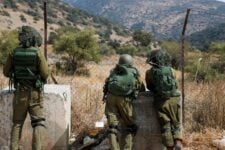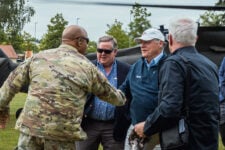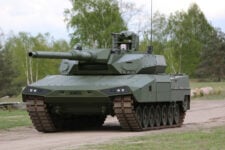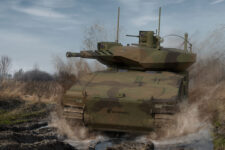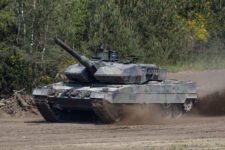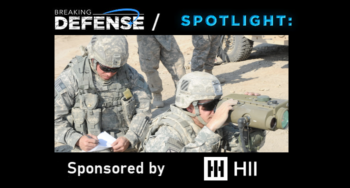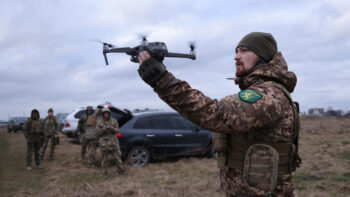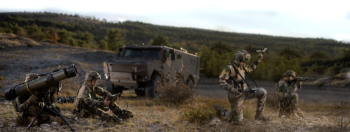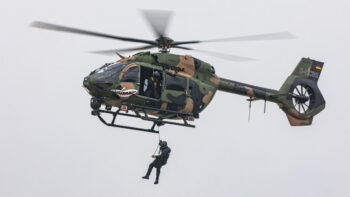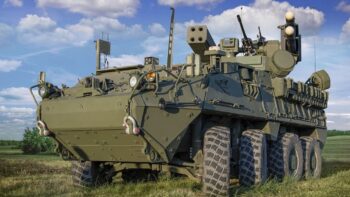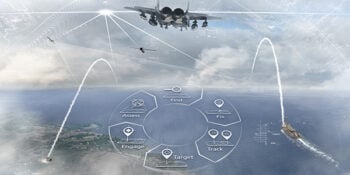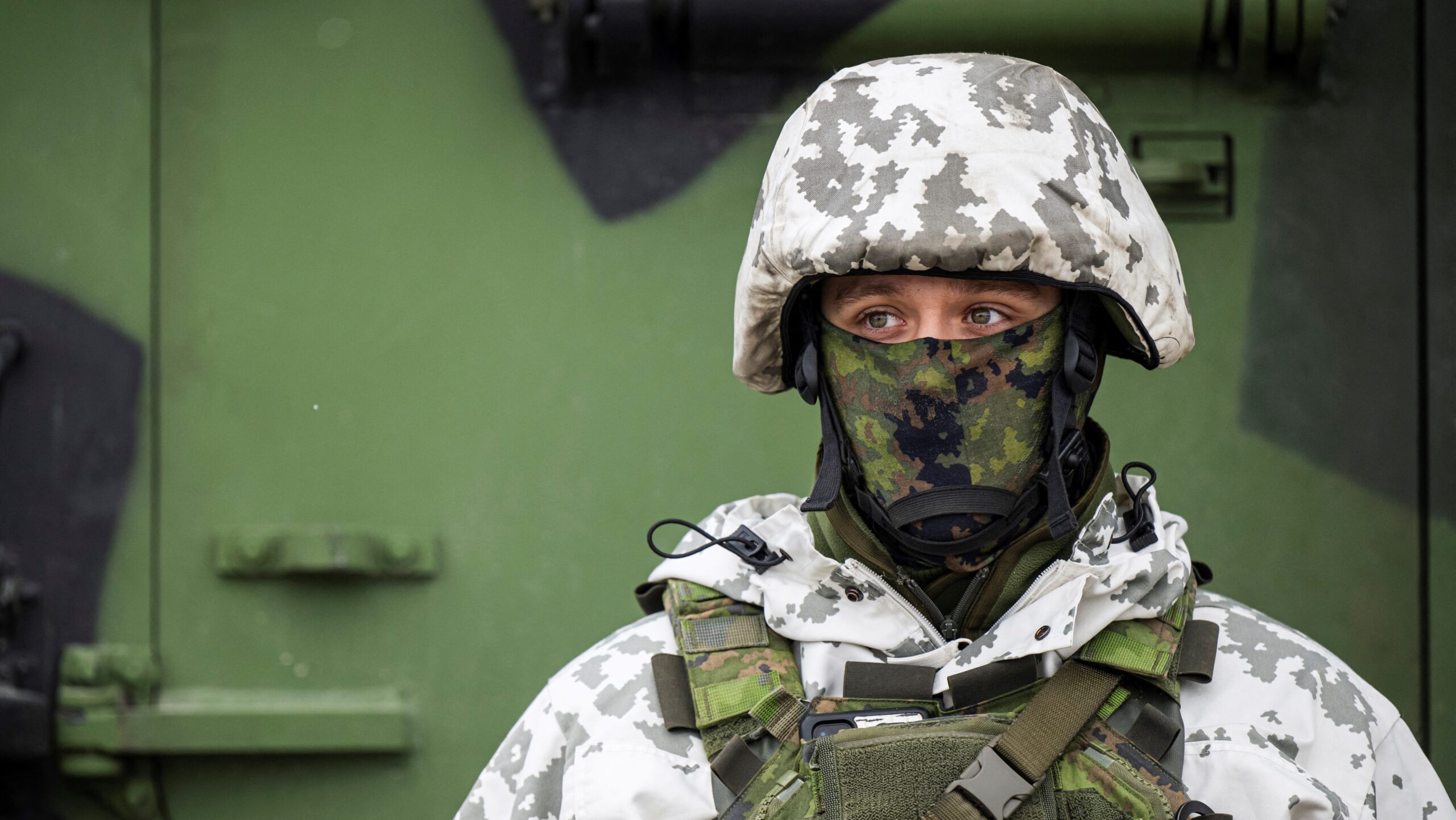
A soldier operating a rocket launcher of the Finnish Defence Forces looks on ahead of a demonstration of border crossing by Swedish and Finnish troops as part of the Nordic Response 24 military exercise on March 9, 2024. (Photo by JONATHAN NACKSTRAND/AFP via Getty Images)
HELSINKI — Despite a suggestion from some European leaders that they would consider sending support troops to Ukraine, a senior Finnish official said he has not seen much “appetite” for the move in Helsinki.
The idea “didn’t raise big enthusiasm here,” Janne Kuusela, Director General for Defence Policy at Finland’s Ministry of Defence, said last week. “I think this policy is widely shared by the NATO nations, as far as I understand, that we do all we can support Ukraine, but I don’t see as big enthusiasm [for] getting NATO directly involved, boots on the ground.”
Kuusela noted that the decision may not be as “black and white” as it seems, however, as NATO nations are already arming Ukraine and advising and assisting Kyiv — so much so that Russia already sees the conflict as a fight with NATO. “They don’t kind of make such a big fuss about it,” he said, referring to the lines Western capitals have drawn for themselves regarding troops.
Still, he said, “I don’t sense a big appetite to have boots on the ground there,” adding that feelings could always change. “So much depends on how this conflict will develop further, and will it stay within Ukraine or is it going to spill over?”
The US Ambassador to Finland, Douglas Hickey, who took up the post in April 2022 after Russia’s invasion but before Finland’s NATO accession, said that he, too, didn’t see a lot of support for the idea of Finnish troops in Ukraine.
Hickey told Breaking Defense in a Wednesday videoconference interview that Washington clearly took issue with French President Emmanuel Macron’s suggestion in February that Western forces should be open to sending in troops. However, he understood that sitting in Helsinki, about 150 miles from the Russian mainland, “I have to say, being close to the border, the Baltic states obviously are very sensitized to this issue for sure. I can understand everybody trying to figure out creative ways to solve a problem.
“But,” he said, “I have not seen a whole heck of a lot of support, quick frankly, around truly putting boots on the ground in any capacity.”
Kuusela, who made the remarks in a talk with the Kaplan Public Service Foundation at the US Embassy, waded into the question as it has percolated in European capitals in recent weeks following Macron’s controversial remarks.
Since the French leader’s comments, top officials from the US, Germany, and Britain have balked what they predict Russia would see as a significant escalation in the conflict. Just this week, the defense ministers from both Canada and Sweden threw cold water on the idea.
In contrast, Lithuanian Prime Minister Ingrida Šimonytė told the Financial Times she was open to sending Lithuanian troops into Ukraine to train Kyiv’s forces there.
Internally, many nations may be grappling with the controversial and complicated question as Estonia has recently. Last week Breaking Defense reported that Estonia’s chief of defense, Gen. Martin Herem, said there had been talk weeks ago about potentially sending Estonian troops to rear-guard medical, logistics or air defense jobs to free up Ukrainian troops for the front, but Herem said discussion died down after it became a political lightning rod. A senior Estonian administration official said that serious discussion was ongoing but later downplayed those remarks, and the Estonian defense minister said such talk hasn’t gone anywhere recently. (Breaking Defense accepted accommodation in Finland and Estonia from KPSF.)
For now, officials in Finland are focusing on doing what they can for Ukraine from afar, while building up their own defenses in anticipation of Moscow turning its attention north, regardless of the outcome of the current conflict.
“Our support for Ukraine is very on the top of our agenda right now,” Kuusela said. “But first of all, the defense of Finland: I usually begin by saying that Finland is a very defense-oriented nation, and I would dare to say that moreso than most other European countries are. And why this is so, it takes us back to our history of experiences to our geostrategic location. We’ve fought more wars with Russia than I’m able to count. We usually lost most of them. But we somehow managed to stay as independent, democratic market economy and we intend to keep it that way.
“We were roughly 100 years part of Russian empire in the 19th century. Not too happy an experience, can’t recommend it to anybody,” he said.
Navy, Marine Corps chiefs sign off on new guidelines for amphib readiness
The new “terms of reference” follow a deep dive the service chiefs ordered earlier this year.

